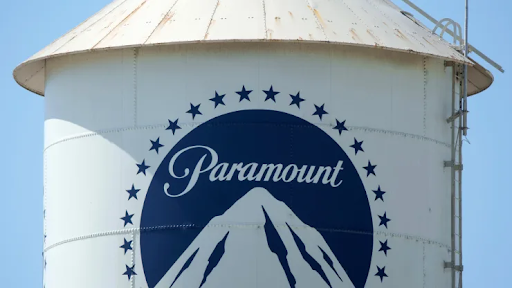Source: CNBC
Corporate mergers are rarely the type of process that anyone who isn’t a high-ranking company executive eagerly looks forward to, especially when the companies involved are major parts of a prominent industry, but in today’s day and age, they are nonetheless becoming increasingly common. Hollywood in particular has been subjected to quite a few acquisitions over the past decade or so; it was just over five years ago, for example, that the Walt Disney Company had completed its purchase of 20th Century Fox and brought a second major motion picture studio under its ownership. While no other buyout of this size and scale has happened with any of the other so-called Big Five studios (a collection that includes the likes of Universal and Warner Bros.), other major corporations have taken it upon themselves to acquire a given studio and seize control of its various film productions. In fact, it wasn’t too long ago that MGM, at one point one of the most prestigious studios in all of Hollywood, was bought by tech giant Amazon, and only a couple years ago did ownership of Warner Bros. move from to Discovery Media from AT&T, which itself had only owned the studio for just a few years. Then there’s Paramount Global, a company that resulted from the merger of Viacom, which had previously owned film studio Paramount Pictures and its various subsidiaries, and news conglomerate CBS. As has been the case with quite a few of the aforementioned companies, very little time seems to have passed between that merger and another that was just recently announced. Despite the ups and downs of the negotiations that have taken place over the past couple months, it appears that Paramount will once again merge with another major company. Its name: Skydance Media.
With the coming merger, the Redstone family, whose company National Amusements previously held a majority of shares in Paramount, will hand over control to Skydance and its founder David Ellison, whose father Larry Ellison also happens to be the founder of another major company Oracle. Although talks of a merger between Paramount and Skydance had been brought to a halt just a few weeks earlier, it would appear that the new terms agreed to by the two companies are satisfactory enough for them to properly pursue such a procedure. According to the deal, private equity firms associated with Skydance like RedBird Capital will invest as much as $8 billion into Paramount, allowing to fully acquire National Amusements and give it around $2.4 billion in value ($1.75 billion of which will be in equity). Skydance itself will invest an additional $1.5 billion into Paramount as it brings all of its assets – the Paramount film studio as well alongside television networks like CBS and Nickelodeon – under its umbrella – and begins its efforts to completely reinvent the company. As Jeff Shell, a prominent representative of RedShell who will serve as the newly merged company’s president, puts it, “it’s a new Paramount, it’s not just a catchphrase… we think it’s going to be a new day for these combined assets.”
It should be noted that despite Paramount and Skydance agreeing to a merger, there’s still quite a bit that needs to happen before the deal can be fully sealed. For one thing, approval from the government and its various anti-trust departments needs to be given to ensure that this whole ordeal will not lead to a monopoly, a process that isn’t expected to be complete until around the third quarter of 2025. There’s also the “go-shop period” that’s set to take place during this time, that in which a special committe acting on behalf of Paramount can seek out other, potentially more preferable offers from other major corporations. Should no such offers be made though, and if the government were to give their seal of approval to Paramount and Skydance’s merger, then it would appear that the fate of Paramount Pictures and its associated film and television divisions is more or less set in stone. At the moment though, there does seem to be a great deal of optimism regarding the direction of the companies and the leadership of soon-to-be CEO David Ellison, whom Shell describes as a creative type most ideally suited to run a company intended to create art and entertainment. “It’s been a long time since a creative executive ran one of the big Hollywood companies,” Shell claims in a recent call with investors, “and I think it’s really important when creative is the core.”
To those currently working at Paramount, a merger with Skydance may as well be the best option available at the moment, especially given the recent struggles the company has had as of lately. The number of cable television customers on which the company had previously thrived has dropped dramatically over the past couple years, and its personal streaming service Paramount+ has yet to turn a profit (although the same can easily be said about many of its competitors, even the more popular Netflix and Disney+). Between all this and its company-wide marketing efforts doing little to generate greater interest in the company, it’s not surprising that Paramount’s stock has faced sharp drops over the past several months and shows little signs of going upwards any time soon. Skydance, as far as some of the most prominent figures in this situation know, could be the key to turning Paramount back into a major competitor; the two already have something of a pre-established history together (with Paramount distributing various Skydance-produced films in the past, as well as CBS partnering with Skydance for the airings of select National Football League games), so the familiarity they have with one another should be at least somewhat beneficial to both in the long run.
For the time being though, the Redstone family, currently headed by National Amusements head Shari Redstone, will have to oversee the transition of power from their decades-long ownership to that of Skydance, that which comes with feelings of melancholy but also hope on Redstone’s part. “As you know, my father [Sumner Redstone] built Viacom and CBS by bringing together a group of the best assets in media, news, and entertainment,” Redstone states in a memo written and sent to employees across Paramount and its various divisions. “While people often debated whether content or distribution ruled the day, my father was governed in all of his decisions by his belief that content was indeed king”. Hopefully, Skydance will continue to adhere to this philosophy and allow Paramount to keep making quality films and other forms of media.




